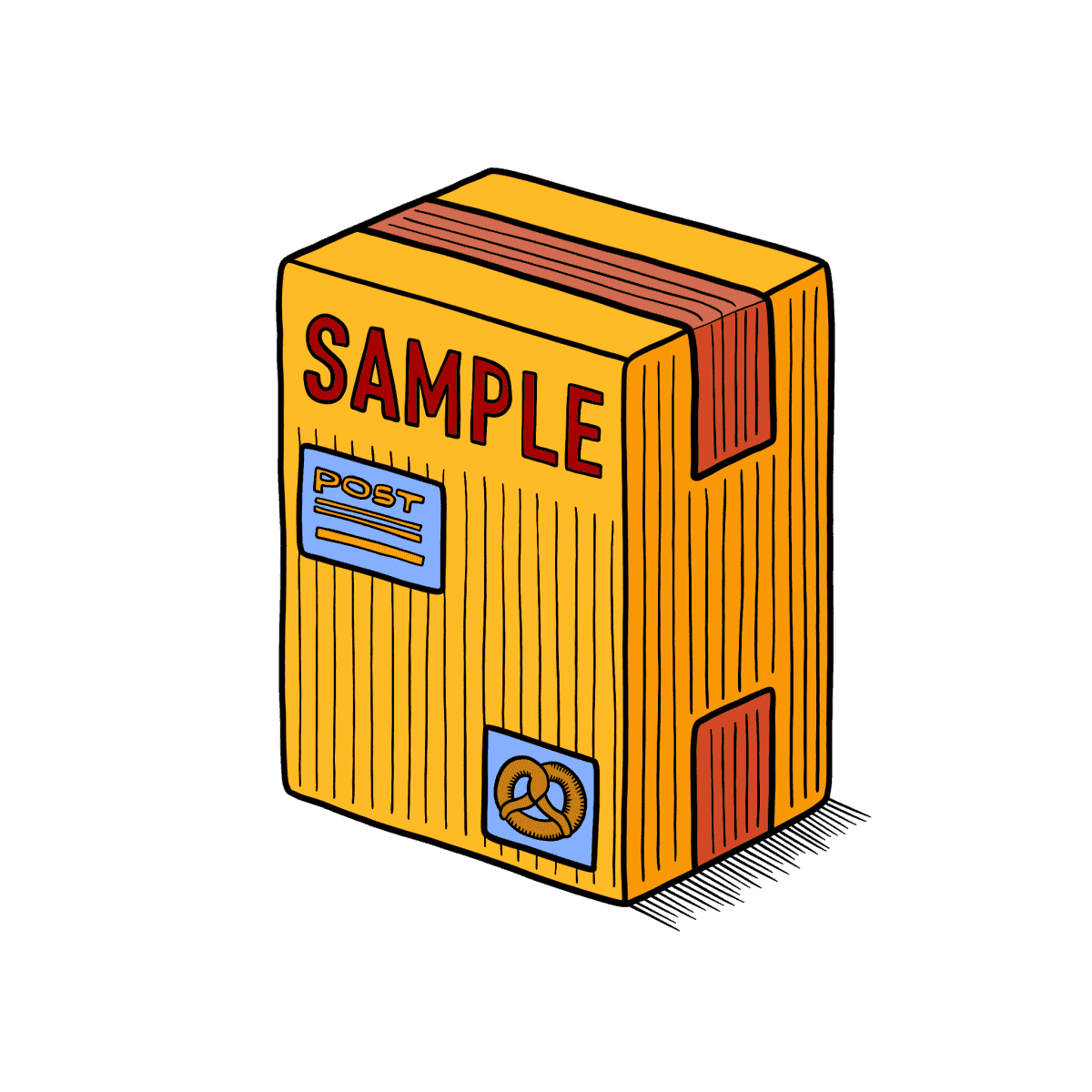German Question Words
Asking questions in German isn't hard! As a beginner, it can be difficult to keep a conversation going, especially when talking to native speakers. But what if you could let the others do the talking? For this, you need to know German question words.

Asking questions in German is one of the most important skills a beginner can learn. Not only do questions come in handy in everyday conversations, but they're also crucial if you can't find your way back to your hostel and can be a big time saver in the supermarket.
German Question Words
German question words can be divided into the basic German question words & more advanced German question words. We will shortly have a look at both. For now, all you need to know is that the basic German question words will get you very, very far and unless you are already a bit more advanced, we do not recommend looking at the more advanced question words for now.
Basic Question Words
Here is the list of basic German question words:
| German | English |
|---|---|
| Wer | Who |
| Was | What |
| Wo | Where |
| Wann | When |
| Wieso | Why |
| Wie | How |
Advanced Question Words
Wer, Wen, Wem, Wessen
Of all the question words, "WerWho" is a bit special, as it comes in four different flavours. If you've studied German grammar for some time already, you might know that nouns take on different forms, depending on what role they play in the sentence.
And this is exactly what also happens here.
Wer, Wen, Wem & Wessen are just different declinations of Wer, according to the four cases nominative, accusative, dative and genitive.
| German | English | Case |
|---|---|---|
| Wer | Who | Nominative |
| Wen | Who | Accusative |
| Wem | Who(m) | Dative |
| Wessen | Whose? | Genitive |
Let's look at an example sentence for each case.
Variations with "Wo" (Woher, Wovon, Womit)
| German | English |
|---|---|
| Woher | Where from |
| Wovon | Where from |
| Wozu | What for |
| Womit | What with |
For those of you interested in learning how to ask simple questions in German, here are the basic German question words you need to know, and some example questions. 💥!
How to Form a Question
In this section, we'll be going through all German questions words and give you a few examples sentences for each. Feel free to skip this section if you're familiar with the most common German question words.
"Was"
The first German question word you might want to know is WasWhat. As a question word, "was" means 'what' and is used in exactly the same way it is used in English.
If you wanted to ask somebody what they got up to yesterday, you would say:
Easy, right?
Or you might ask someone what sort of thing they like. Again, it's pretty similar to how you would say it in English:
Was ist dein Lieblingsessen?
One last example question with "what" that might be useful in German class: "What was the expression I learned yesterday, again?":
Was war das nochmal für eine Redewendung, die wir gestern gelernt haben?
"Wo"
| Deutsch | Englisch |
|---|---|
| Wohin bist du gegangen? | Where did you go? |
| Wo ist mein Stift? | Where is my pen? |
| Wo sollen wir zu Abend essen? | Where should we go for dinner? |
"Wann"
| Deutsch | Englisch |
|---|---|
| Wann ist deine erste Prüfung? | When is your first exam? |
| Wann können wir uns treffen? | When can we meet up? |
| Wann ist dein Geburtstag? | When is your birthday? |
"Wie"
"How" in German is "Wie". You have probably already encountered this question word in the question "How are you", which in German is "Wie geht's?" or "Wie geht es dir?". Here are a few more examples on how "wie" can be used to form a question:
| Deutsch | Englisch |
|---|---|
| Wie kann ich mich das nächste Mal verbessern? | How can I do better next time? |
| Wie kann ich dir helfen? | How can I help you? |
| Wie geht es deinem Bruder? | How is your brother doing? |
"Wieso", "Weshalb" & "Warum"
| Deutsch | Englisch |
|---|---|
| Warum enden die Ferien immer zu früh? | Why do holidays always end too soon? |
| Warum musst du jetzt gehen? | Why do you have to leave now? |
| Warum kannst du nicht länger bleiben? | Why can’t you stay a little longer? |
For more German language learning tips and examples, why don't you check out these other articles:
5 Ways to Explore Immersive Language Learning, and 3 ways to say "I love you", for beginner German language learners 😊.
Oh, and if you're into romantic things, you might also want to check out these German romcom's for intermediate learners.
Warum vs. Wieso vs. Weshalb - What's the difference?
Example Questions
Simple German Questions
Very simple German questions for beginners:
Und das wars!
Common German Questions
| Deutsch | Englisch |
|---|---|
| Wie geht's? | How are you? |
| Was geht? | ~ What's up? |
| Was machst du morgen? | What are you up to tomorrow? |
| Wie teuer ist das? | How much does this cost? |
| Wieviel macht das? | How much do you get? (e.g. to a cashier) |
| Wann hast du Zeit? | ~ When are you free? |
| Wie alt bist du? | How old are you? |
| Kannst du das bitte wiederholen? | Could you please repeat that? |
| Wieviel Uhr ist es? | What's the time? |
Oder, Nicht & Gell
Specific Requests
We'll end this article with a few questions that might come in handy in specific situations. Say, when asking for the bill at a café or restaurant or when you want to ask somebody for the time.
Use this as a reference, or explore the articles linked to in each section, if you would like to dive deeper. Enjoy!
How do I ask for the bill in German?
Asking for the restaurant bill in German can be a bit of a challenge if you have only just started learning the language. If so, check out the more detailed article in the box above.
If you do know how to form basic German sentences, you can just remember one or two of the following phrases:
- Wir hätten gerne die Rechnungbill, bitte.
- Es wäre schön, wenn Sie uns die Rechnung bringen könnten.
- Könnten wir bitte zahlento pay?
- Wir würden dann auch gleich zahlen, wenn das geht?
How do I ask for the time in German?
Asking for the time is another subject that German learners have come to dread. And not without good reason: Asking for and telling the time in German could be an article in its own right.
If you're in a hurry, there is no way around it. Just use one of the following questions to ask for the time:
- Wie spätliterally: late ist es?
- Wieviel Uhr ist es?
- Könnten Sie mir sagen, wie spät es ist? (formal)
- Könnten Sie mir die Uhrzeittime sagen? (formal)
German question sentence structure German question word order




